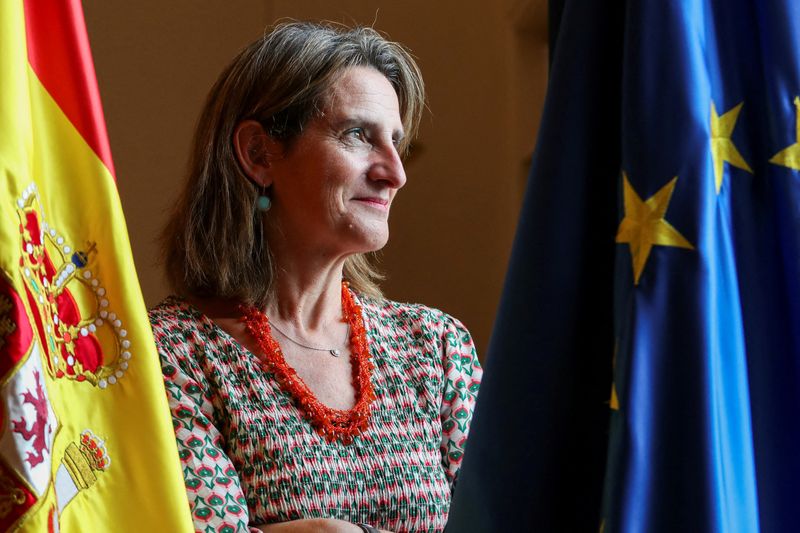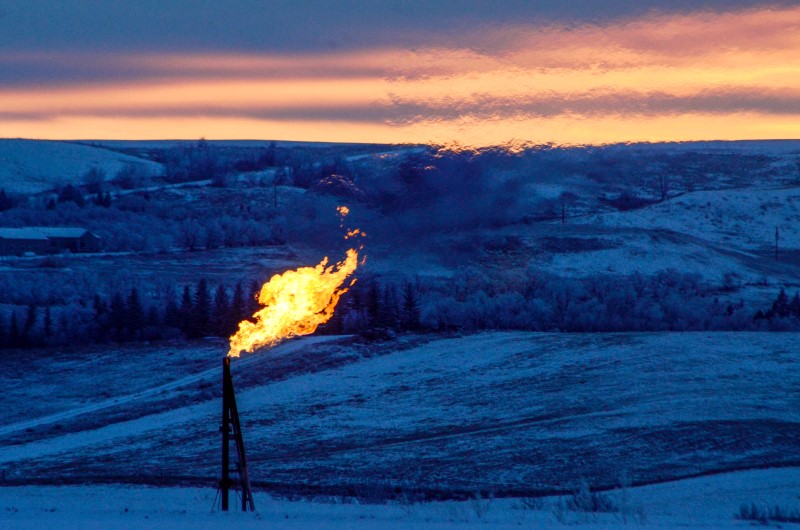By Julia Payne
BRUSSELS (Reuters) - The European Union has no short-term plan to ban Russian liquefied natural gas (LNG) despite soaring imports to the bloc, Spain's energy minister said, citing fears of another price spike.
Russia's energy revenue has fallen since western powers imposed sweeping economic sanctions on Moscow over its invasion of Ukraine, but LNG still brings in billions of dollars.
"There is this feeling of scarcity and fear," Spanish energy minister Teresa Ribera told Reuters, referring to Europe's energy crisis last year.
Spain holds the rotating EU presidency until the end of December, enabling it to prioritise legislative decision-making.
The bloc's overall imports of Russian natural gas have sunk since last year after Russia cut flows to Europe in response to sweeping western sanctions on its economy and an explosion on the Nord Stream subsea pipelines.
However, Europe's imports of Russian LNG between January and July are up 40% compared with the same period in 2021 and before the war in Ukraine. The flows show no signs of slowing despite EU aims to stop using Russian fossil fuels by 2027. The bloc has already banned seaborne imports of Russian crude oil and oil products such as diesel.
"I guess sooner than later if things do not change in Russia and Ukraine, this (a ban) will take place. But for the time being, after the turmoil last year, the European Commission and member states want to see how things evolve in a peaceful manner to avoid additional turbulence," Ribera said.
European industry and manufacturing had to reduce output last year in the face of soaring energy costs, led by gas, adding to already rising post-pandemic inflation. Germany's economy - the engine of Europe - fell into mild recession over the winter.
In the first eight months of 2023 Russia's oil and gas revenue fell by 38.1%, year on year, according to its finance ministry, as tax returns declined owing to lower prices and sales volumes.
LNG still earns Russia billions of dollars, with Brussels-based consultancy Bruegel calculating that Europe paid Russia 12 billion euros ($12.85 billion) for LNG between March 2022 and February this year.
Spain has become the second largest buyer of Russian LNG globally.
"I don't like it. I know because of the infrastructure we have, what we are witnessing is new players in the LNG market transporting and storing this (Russian LNG) in our facilities to be able to re-export whenever," Ribera said.
She added that the Spanish government has looked at ways to stop these imports but could find no legal basis for a ban without an agreed EU position because it is external trade.

"So we've asked companies not to enter into new (Russian) commitments and to be more transparent on where they get this LNG to start with," she said.
($1 = 0.9341 euros)
